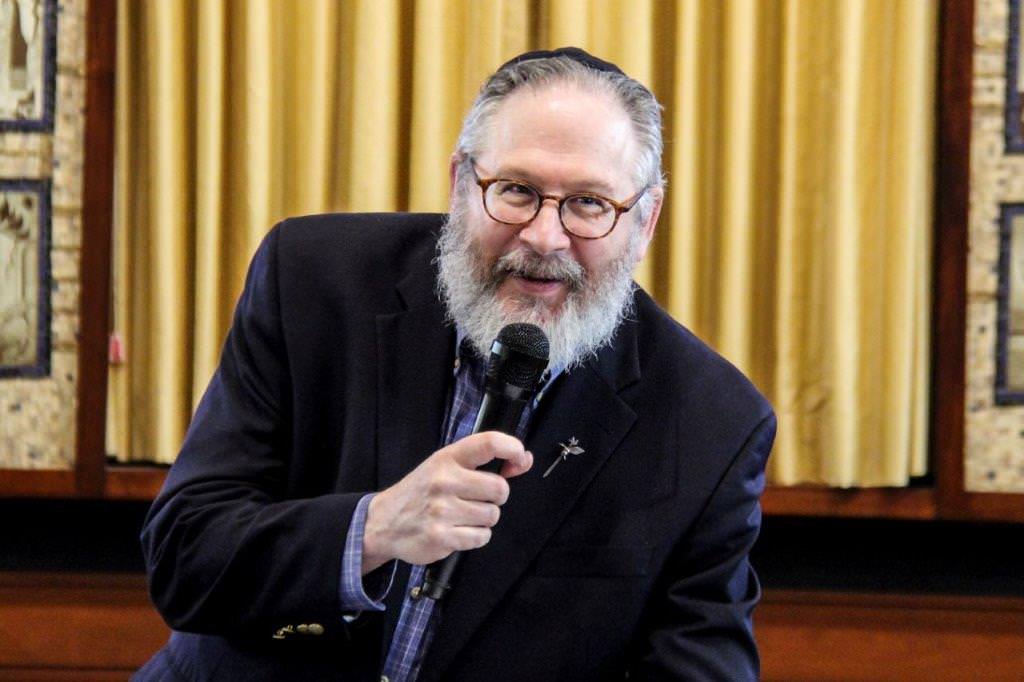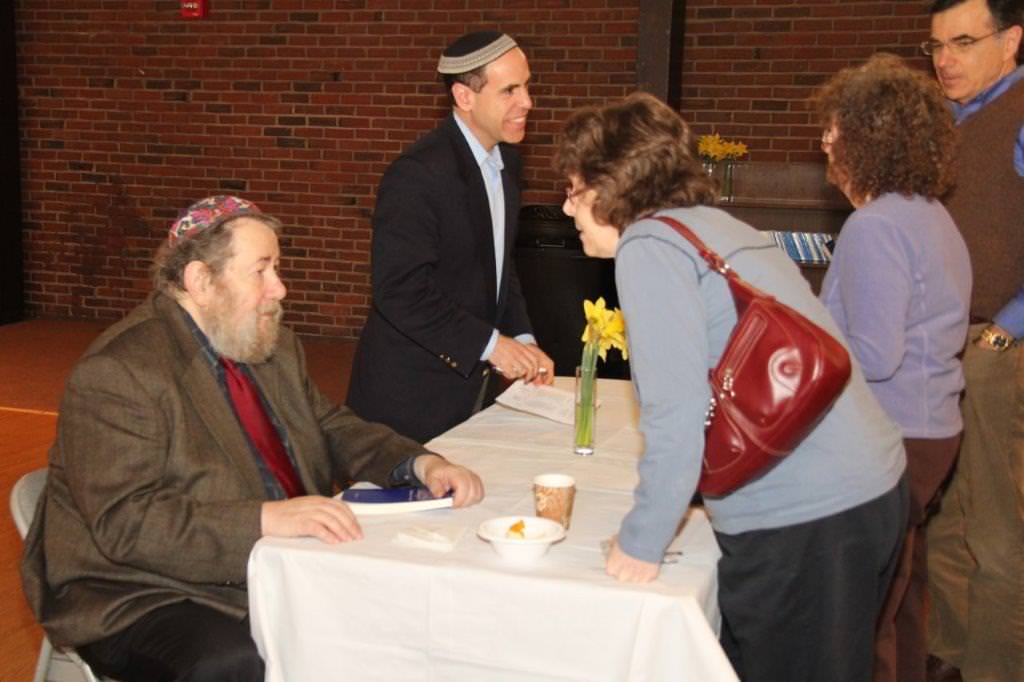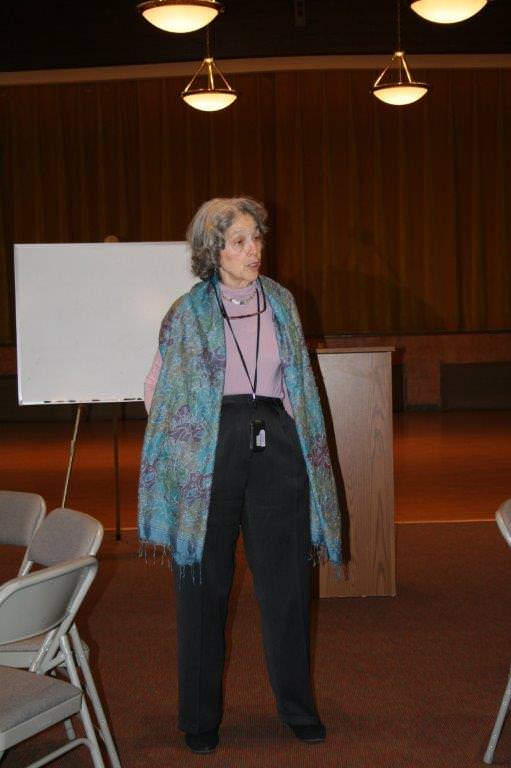Kallah
Temple Reyim led the region in establishing its annual Kallah weekend of learning and tefilla in 1969. Each year, through lectures and discussion, an outstanding scholar leads study during and after Kabbalat Shabbat and Shabbat morning services and a Sunday morning community gathering. In 47 Kallah weekends, we have studied: core Jewish texts – Bible, Talmud, Midrash; ancient, medieval and modern history, including Zionism; philosophy; liturgy and the meaning of prayer; Shabbat and holidays; literature; ethics; music; and sociology. We have learned with great teachers from universities and rabbinical seminaries.
The Kallah re-lives a very longstanding tradition of twice-yearly open assemblies for study with scholars of the academies in ancient Babylon. The Temple Reyim Kallah is named for Rabbi Philip Kieval, who founded it with initial support from Saul and Harriet Goldweitz, in memory of Saul’s mother Gussie Goldweitz.
The first Reyim Kallah scholar was Professor Robert Chazan, a historian then at the University of Cincinnati, whose subject was “Jewish Christian Relationships From the Past To The Present”.
Kallah Speakers and Topics
| Year | Speaker | Institution | Topic |
| 1969 | Robert Chazan | University of Cincinnati | Jewish Christian Relationships the Past To The Present |
| 1970 | Gerson Cohen | Columbia University | Dissidence and Revolt Against the Jewish Establishment Ancient and Modern Times |
| 1971 | Trude Weiss-Rosmarin | The Jewish Spectator | What Can a Modern Jew Believe |
| 1972 | Yochanan Muffs | Jewish Theological Seminary | The Humanity of God: The Psychology of the Prophet |
| 1973 | Avraham Holtz | Jewish Theological Seminary | The Modern Jew Searches for His Identity |
| 1974 | Gershon Winer | Resident in Israel | Our Jewish World: The Message in the Media |
| 1975 | Jakob Petuchowski | Hebrew Union College | The Dynamics of Our Jewish Heritage |
| 1976 | Ismar Schorsch | Jewish Theological Seminary | A Study of Jewish Political Strategy Through the Ages |
| 1977 | Charles Liebman | Bar-Ilan Univ., J.T.S. | The Development of the American Jewish Synagogue |
| 1978 | Fritz Rothschild | Jewish Theological Seminary | God, Man and Judaism - Their Meaning for Our Life |
| 1979 | Seymour Siegel | Jewish Theological Seminary | Today's Challenges to Jewish Law: The Conservative Response |
| 1980 | David Sidorsky | Columbia University | Revolt and Continuity in Jewish Thought |
| 1981 | Emanuel Goldsmith | Univ. of Connecticut | The Heritage of Yiddish Culture |
| 1982 | Steven Katz | Dartmouth College | Varieties of Jewish Religious Experience in the Second Temple Period |
| 1983 | Ronald Brauner | Reconstructionist Rabbinical College | Conflict and Accord - Making It in the Modern World |
| 1984 | Jules Harlow | Jewish Theological Seminary | What's so Conservative About Prayer? |
| 1985 | Burton Visotzky | Jewish Theological Seminary | Exodus Revisited: History, Legend and Lore |
| 1986 | Howard Sachar | George Washington Univ. | A Journey Through Modern Jewish Experience |
| 1987 | Reuven Kimelman | Brandeis University, CLAL | Changing Images of the Jew - Will Our Grandchildren be Jewish? |
| 1988 | Leonid Feldman | CLAL, Wexner Heritage Fndn | Why be Jewish? An Odyssey from Communism to Judaism |
| 1989 | Morton Leifman | Jewish Theological Seminary | Exploring Judaism Through Words and Song |
| 1990 | Isaiah Gafni | Hebrew University, Jerusalem | The Jew and His World: Family Ties, Community & Social Confrontations |
| 1991 | Hillel Levine | Boston University | Judaism and the Modern World: Jewish Contributions to the Processes of Modernization |
| 1992 | Benjamin Gampel | Jewish Theological Seminary | From Golden Age to Expulsion: The Saga of Sephardic Jewry |
| 1993 | Nehama Aschkenasy | Univ. of Connecticut, Stamford | Family, Community and Generational Conflicts: A Journey Through Judaic Literature |
| 1994 | Joel Roth | Jewish Theological Seminary | The Centrality of the Talmud |
| 1995 | Jack Wertheimer | Jewish Theological Seminary | Walking the Tightrope: Judaism in Contemporary America |
| 1996 | Shaye Cohen | Brown University | Judaism in the 20/1st Century |
| 1997 | Moshe Waldoks | Camp Ramah/AviChai foundation | The Power of Positive Judaism |
| 1998 | Ora Horn Prouser | Jewish Theological Seminary | Disturbing Biblical Texts |
| 1999 | Yosef Abramowitz | Jewish Family & Life Magazine | Challenges Jews Face: A Journalist's Perspective |
| 1999b | Everett Fox | Clark University | The Bible: New Hearings, New Views |
| 2000 | Diane Sharon | Jewish Theological Seminary | Rivalry in the Bible |
| 2001 | Jay Harris | Harvard University | Is There a Future for Zionism? Should There Be? |
| 2003 | Barry Holtz | Jewish Theological Seminary |
Our Living Texts: What We Can Learn Today?
|
| 2004 | Jonathan Sarna | Brandeis University | Jews in America: To Bigotry no Sanction; to Persecution no Assistance |
| 2005 | Or Rose | Hebrew College | The God(s) of Judaism: A Historical Journey |
| 2006 | Ruth Langer | Boston College |
Talking to G-d: Way Jews Pray
|
| 2007 | Jacob Meskin | Hebrew College | The Modern Jew: Visions and Controversies |
| 2008 | William Dever | University of Arizona, Emeritus | Where Did We Come From? Origins of Ancient Israel. |
| 2009 | James Loeffler | University of Virginia | The Most Musical Nation: The Musical Life of Jewish Eastern Europe |
| 2010 | Barbara Geller | Wellesley College | Rabbis, Romans, and the Birth of Christianity |
| 2011 | Jane Kanarek | Hebrew College | Women's Ways to the Rabbinate: Reform, Conservative, and Orthodox |
| 2012 | Peter Cole, Adina Hoffman | MacArthur Fellow; Ibis Editions; Yale Univ; Wesleyan; Ibis Editions | Hidden Wisdom, Concealed Treasure: Uncovering the Medieval Jewish World |
| 2013 | |||
| 2014 | Arthur Green | Hebrew College Rabbinical School | Radical Judaism |
| 2015 | Ruth W. Messinger | American Jewish World Service | Repairing the World |
| 2016 | Michael A. Grodin | Boston University | Jewish Bioethics |
| 2017 | Steven Whitfield | Brandeis University | Jews in Popular Culture |
| 2018 | William Miles | Northeastern University | African-Jewish Communities and Encounters |
| 2019 | Susannah Heschel | Dartmouth University | Perspectives on Human Dignity and Anti-Semitism |
| 2021 | Gary Rendsburg | Rutgers University | The Bible Through Literary Eyes |
| 2022 | Rav Professor Rachel Adelman | Unlikely Agents of Redemption in the Purim and Passover Stories |


